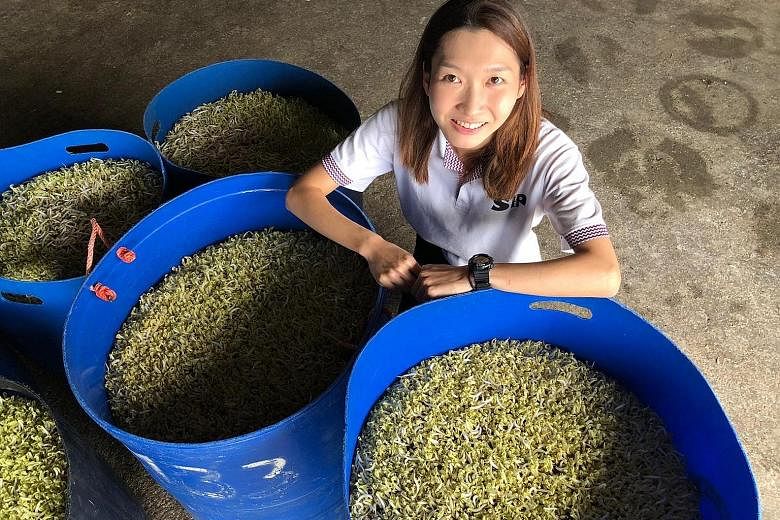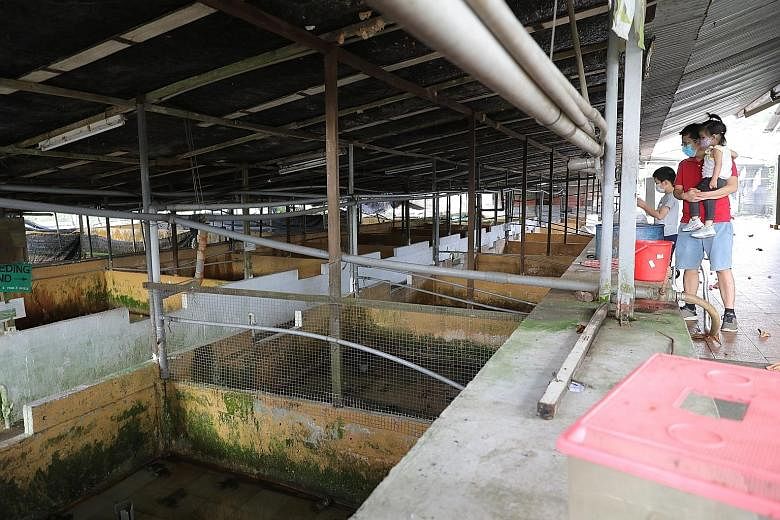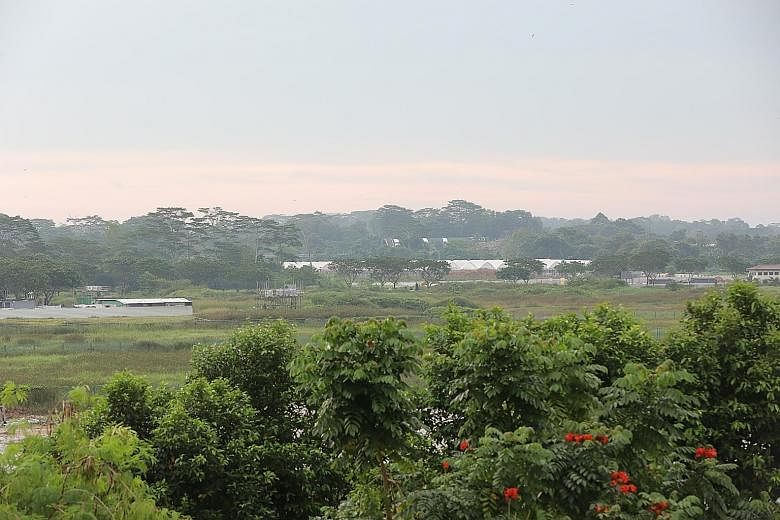The Lim Chu Kang area looks set to be transformed into Singapore's food bowl as the country ramps up its drive to produce more food locally as a buffer against global supply shocks.
About 390ha of land there will be redeveloped under a masterplan to create a "high-tech, highly productive and resource-efficient agri-food cluster", the Singapore Food Agency (SFA) said yesterday.
The redevelopment will see the Lim Chu Kang area - currently home to a number of traditional farms - more than triple its current food production, it added.
Currently, an average vegetable farm here occupies around 2ha of land and produces about 130 tonnes of vegetables per hectare every year. But the SFA said a high-tech vegetable farm could produce more than 1,000 tonnes every year, with less than 1ha of land.
SFA will consult stakeholders such as farmers on the development of the masterplan over the next two to three years.
Development works are expected to commence in 2024 and will be carried out in phases, the SFA added in a statement.
All farms currently in Lim Chu Kang will be able to stay on until the end of their leases, the SFA said.
Ten food farms and 13 non-food farms, whose leases are expiring between this year and 2022, will be offered a short-tenancy extension, after which the land will be redeveloped in line with the masterplan.
One food farm and two non-food farms whose leases are expiring between 2026 and 2027 will be allowed to continue until their leases expire, said the agency.
The SFA and the National Parks Board (NParks) will work closely with these farms to support their transition plans. Some non-food farms, such as ornamental fish farms and nurseries, fall under the purview of NParks.
Singapore currently produces less than 10 per cent of the food it needs, although the plan is to boost this to 30 per cent by 2030.
"The ongoing Covid-19 global pandemic has underscored the importance of ensuring that we have diversified sources and resilient food supply chains," added the SFA.
The redevelopment of Lim Chu Kang will help the agri-food sector develop sustainable, highly productive and industry-leading farms of the future, strengthening food security and creating jobs, the SFA said.
To this end, the food agency will look into the development of shared facilities in the Lim Chu Kang area to lower costs of production and resource use, as well as put in place water, electricity and transport infrastructure to support high-tech farming systems and attract a new generation of agri-tech skilled workers.
"We will also explore how we can conserve the use of resources and minimise waste by adopting circular economy principles," it added.
This could include, for example, using animal waste from one farm to generate bio-gas for energy.
Farmers yesterday welcomed news of the redevelopment of Lim Chu Kang, saying it could boost the infrastructure needed for high-tech farming in the area.
The masterplan also showed that food security was an important area for Singapore, giving farmers the assurance of making the investments needed to scale up yield.
One such farmer is Ms Jean Woon, 31, manager of Ser Poh Farm. Her 1.2ha beansprout farm will be moving from Lim Chu Kang to a new plot in Sungei Tengah by the end of next year, with plans to double the farm's current output through the use of technology such as auto-irrigation systems.
"Governmental support for the industry over these few years, such as the recently announced masterplan and also in terms of funding support for use of technology, gives us greater certainty about the viability of the industry and gives us greater motivation to invest," she said.
The SFA also said the Lim Chu Kang masterplan does not encroach onto the recently announced Sungei Buloh Nature Park Network, which includes the biodiversity hot spots of Sungei Buloh Wetland Reserve and Kranji Marshes. The food agency will be conducting an environmental study and will work with nature groups to better understand the ecosystem of flora and fauna in the area.
The study is expected to be completed in the middle of next year, and findings will be taken into consideration as part of its masterplan exercise.
Nanyang Technological University food expert William Chen, the Michael Fam Chair Professor in food science and technology, said a tech-driven farming system is key for the future as it would make the food production system more resilient to external factors, whether pandemics or climate change.
"In addition, it would make the food supply chain less dependent on current major food-producing countries," he said.
Correction note: The caption for one of the photos has been edited to reflect the correct name of Jurong Frog Farm. We are sorry for the error.




